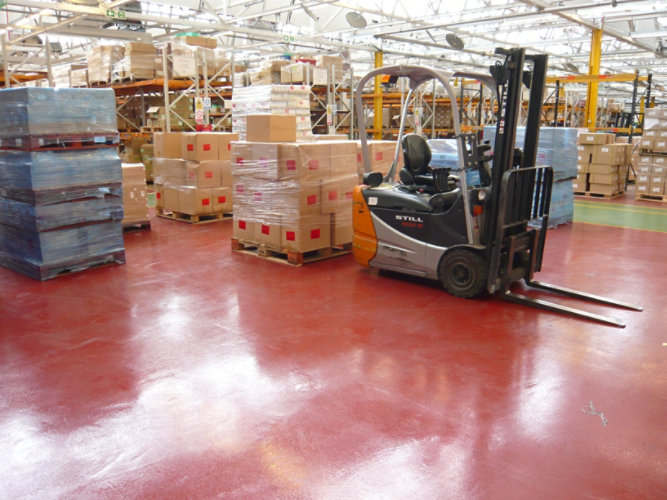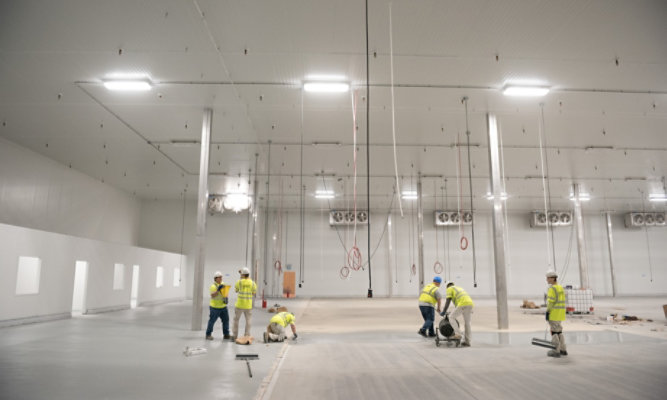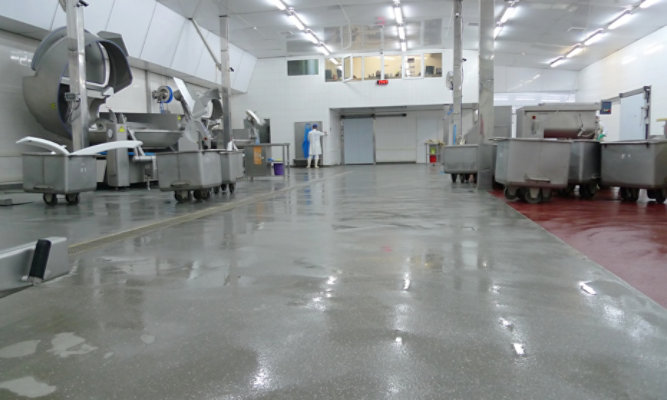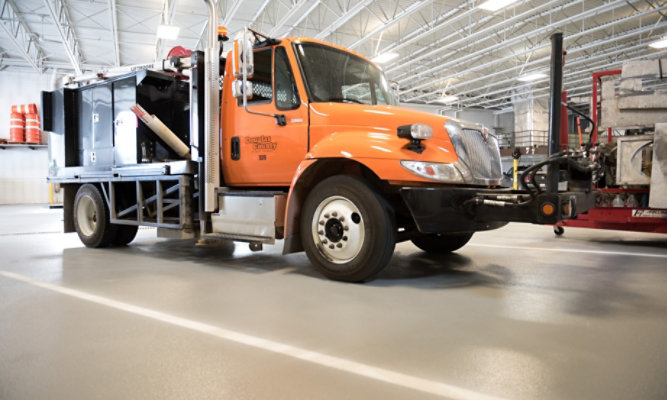How Thick Should an Epoxy Floor Coating Be?
A common question for people new to the world of epoxy floor coatings and resinous flooring is: How thick are these coating systems? There’s no one simple answer, because the truth is that there is a wide range of acceptable thicknesses, and proper selection of an epoxy floor coating system takes a number of critical factors, including how thick the floor should be, into consideration.
Learn More or Get a Free Flooring Evaluation

The thinnest epoxy floor coating systems are only approximately 0.011 to 0.025 inches (11-25 mils) thick, essentially consisting of consist of a primer, optional midcoat, and a topcoat. Depending upon the type of topcoat, these thinner coating systems can range greatly in their performance. The simplest of these can provide basic protection in light traffic environments, effectively reduce concrete “dusting,” furnish optional slip-resistance and create an attractive surface that is easy to clean. On the other hand, very abrasion resistant, high performance topcoats, even in thinner system applications, can offer exceptional wear resistance in moderate to very busy traffic situations, so long as high impact, heavy loads or other extreme conditions are not present.
For heavy duty situations, standard epoxy floor coatings and resinous systems can be installed at thicknesses of 0.375 inches (375 mils or 3/8”) or greater. These typically incorporate various strengthening aggregates or powders, followed by application of select grout coats and topcoats. However, the great majority of professional-grade polymer flooring and epoxy coating systems are installed at thicknesses within the 0.020 to 0.250 inches (20 – 250 mils) range.
The Condition of the Concrete Substrate
The first factor decision makers must consider is the condition of the underlying concrete onto which the epoxy or other resinous system will be installed. A thinner coating system may be sufficient for protecting a new, freshly poured concrete slab free of gouges, pitting or deep cracks. But, should the latter conditions exist, then thicker patching or resurfacing systems may be required to correct the underlying damage to the substrate. These may be followed by self-leveling materials to further help smoothen uneven surfaces. The deeper the cracks and pits, the thicker the floor coating system will need to be in these impaired areas.
Traffic, Chemical Exposure, and More
Another important factor in determining the appropriate thickness of a resinous or epoxy floor coating is the usage it will be subjected to after installation. Not only traffic frequency, but also the weight of loaded vehicles and heavy equipment, must be considered. As a general rule of thumb, a floor with an aggregate-filled coating system is capable of bearing far more weight and impact than a floor with a thin film coating system or even an uncoated concrete slab on its own. This is partially due to the aggregate content’s tendency to spread the load or impact pressure across the surface of the floor. Therefore, in facilities where very heavy machinery is stored or moved, or where heavily laden forklift traffic is prevalent (along with the occasional dropped load!), companies often standardize the use of ¼” thick, aggregate-filled epoxy floor coatings.
In addition to the weight and impact of industrial traffic, exposure to high concentration chemicals can have a deteriorating effect on concrete floors over time. In settings such as pharmaceutical manufacturing, water treatment plants and other processing operations, floors can get exposed to harsh chemicals on a daily basis. In such locations, flooring systems must be carefully selected and installed to withstand the given conditions. Surfaces that get regularly exposed to chemicals must never be left unprotected, as unsealed concrete is porous and can absorb chemicals, eventually risking contamination of the soil below grade. Well-specified epoxy floor coatings and other resinous systems for processing facilities are designed to provide enhanced chemical resistance.
Epoxy and Other Resinous Flooring Systems
Sherwin-Williams is proud to offer not only a variety of epoxy floor coatings, but also cementitious urethane, polyaspartic and other resinous flooring systems, installed as liquids to create a smooth, strong surface that stands the test of time in a wide range of industries. Whatever your facility’s flooring requirements, our experts can recommend the optimal value-based solution.
Discover More
Industry Expertise and Innovation
See how we help customers find customized solutions for their project and application challenges.
System Lookup
Find out more about our innovative floor systems for a variety of industries.
FIND A SYSTEM

